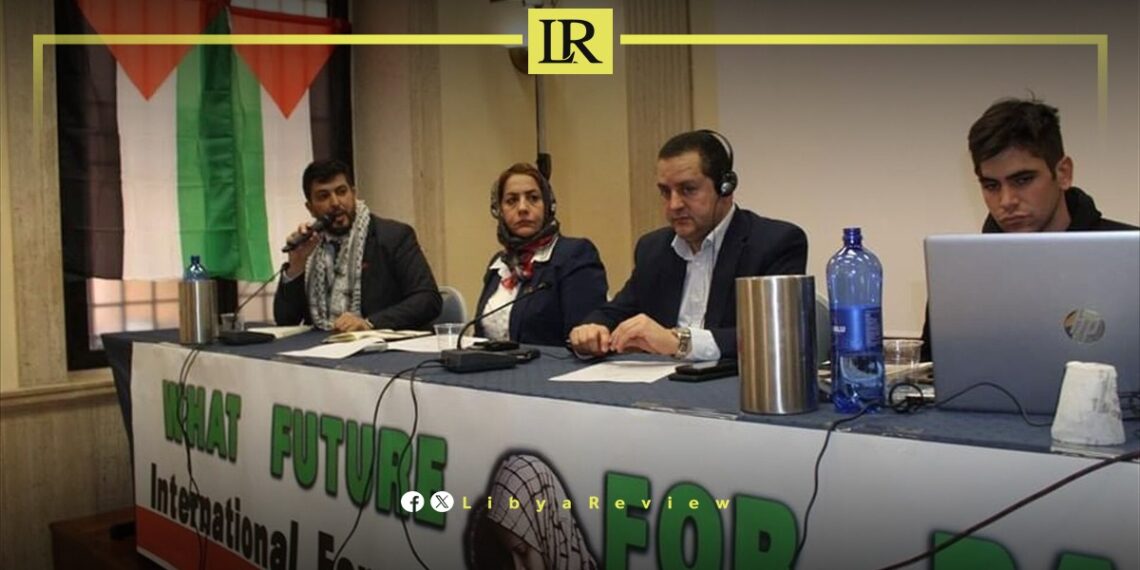On Sunday, Libya’s Foreign Minister of the Parliament-designated government Abdulhadi Al-Hwaij, voiced Libya’s unwavering support for the Palestinian cause during the International Forum on the Future of Palestine held in Rome, Italy.
Al-Hwaij’s participation came at the invitation of the Italian Resistance Front and was part of a gathering that included a wide array of international political, diplomatic, and academic figures, as well as media representatives from over twenty countries.
In an interview with Sputnik, Minister Al-Hwaij affirmed Libya’s steadfast position on Palestine, emphasizing the country’s consistent policy to treat Palestinians with the same rights as Libyan citizens.
He pointed to significant legislative measures, such as the Libyan House of Representatives’ decision to criminalize any interactions with the Zionist entity, illustrating Libya’s strong stance against normalization of relations with Israel.
Al-Hwaij highlighted Libya’s active role in the international arena, particularly its recent initiative urging the International Court of Justice to demand an immediate cessation of Israeli hostilities in Gaza and the West Bank.
On his part, Libya’s legal representative at the court, Ahmed Al-Jehani, articulated the right of Palestinians to resist six decades of occupation—a direct violation of international humanitarian law as per United Nations standards.
During his plea, Al-Jehani called on the global community to withdraw support for Israel and prevent the forced displacement of Palestinians. He pressed the United Nations to consider further actions to promptly end the occupation, criticizing Israeli policies aimed at undermining the Palestinian right to self-determination and obstructing the creation of an independent Palestinian state.
This participation at the Rome forum underscores Libya’s diplomatic efforts to highlight Palestinian issues on the global stage, advocating for substantive actions against the occupation and supporting the pursuit of a sovereign Palestinian state amidst increasing Middle Eastern geopolitical tensions.


